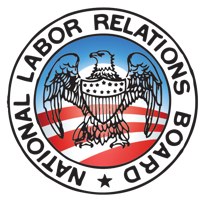On Monday, the National Right to Work Foundation (NRTW) announced that it was assisting four clients challenging the validity of the appointments including Richard Griffin (whose name you’ve certainly heard before), Sharon Block, and Terence Flynn (who has since resigned from the NLRB).
In a move that one legal expert called “a tyrannical abuse of power,” President Obama “appointed” these three individuals as “recess appointments” even though the U.S. Senate was not in recess.
The NRTW challenge was filed in the Seventh Circuit Court of Appeals. The consolidated cases are intriguing:
The NLRB found in both cases that union bosses illegally forced workers who exercise[d] their right to refrain from formal union membership to “annually renew” their objections to paying full union dues.
But in both cases, the NLRB – filled with President Barack Obama’s legally-suspect appointments – only applied their ruling prospectively to the workers involved in the cases and not retroactively to all workers who have objected in the past to paying full union dues to the respective unions.
NRTW argues that if the appointments were invalid, then the NLRB did not have the required quorum of three members to rule on these cases.
Establishing quorum is what led to the other mess at the NLRB in the last few days. The board was, once again, rebuked in their attempts to reinstate the “quickie election” provisions it approved only months ago. The rule, also known as the “ambush election” rule would allow union certification elections to take place within two weeks of filing a petition. This does not give employees or employers enough time to prepare, lay out all the facts, and carefully consider the implications of establishing a union shop.
The problem for the NLRB is that of the three members on the Board, only two voted in favor of the rule—and the third member did not vote at all. The NLRB is required to have at least three votes cast for any rule-making decision that is made.
Ironically, as the NLRB struggles with figuring out how to properly vote and determining the eligibility of their own voters, they want to speed up the election process for American employees.




